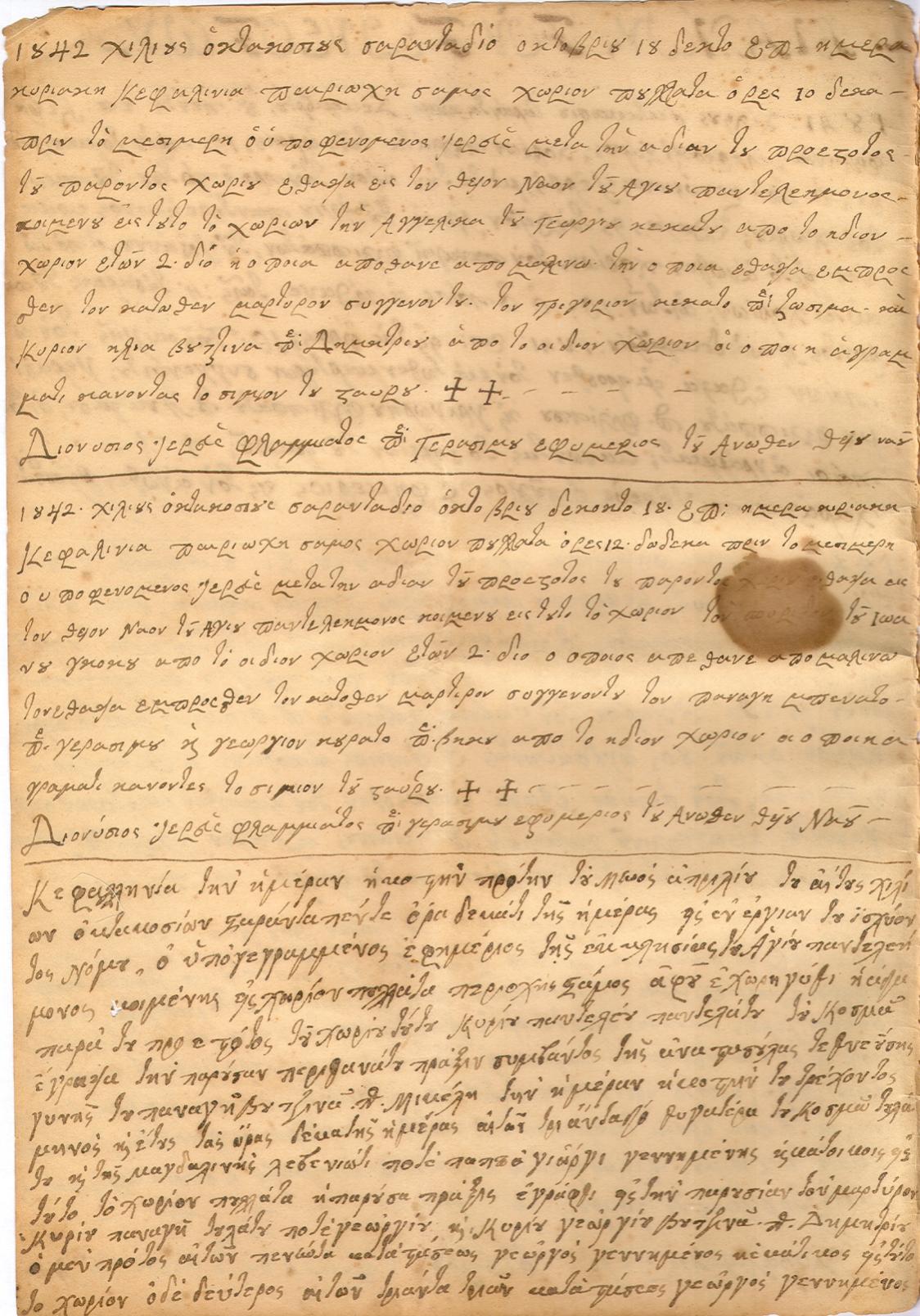
Text Mining

Research Themes:
- Text categorization and clustering methods. We build algorithms and tools for the identification of stylistically homogeneous categories.
- Writing style representation. We study the effectiveness of several features that capture stylistic properties of documents including low-level features like character n-grams and more elaborated features using the output of natural language processing tools.
- Intelligent information retrieval. We are interested in measuring document similarity based on stylistic criteria and identifying parts of a single document with distinct writing styles.
Applications:
- Authorship attribution
- Text and web-page genre detection
- Plagiarism analysis
Data Mining

Research Themes:
- Bayesian networks: We emphasize on reasoning under conditions of uncertainty in complex, changing environments.
- Text Mining: We endeavor to use ontologies with standard linear algebra and pattern recognition techniques to reveal significant text patterns.
- Inforainment Data Mining: We focus on creating intelligent, interactive games and other entertaining environments by analysing user behavior during gameplay activity,.
- Privacy-Preserving data mining: We focus on keeping sensitive information hidden from mining tasks without deteriorating the mining performance.
- High-scale, parallel data mining: We emphasize on dealing with high-dimensionality problems in an effective and efficient manner.
Applications:
- Modeling of intelligent sensor networks.
- Modeling of multimedia databases in marketing applications.
- Prediction of Financial Markets by incorporating stock indices with financial news.
- Creation of artificial intelligence engines within action video games.
- Privacy-Preserving Classification of horizontally and vertically partitioned datasets.
- Nvidia CUDA based Radial Basis Function classification algorithm for large databases.
Image Processing and Computer Vision

Research Themes:
- Interactive Systems. We build tools appropriate to improve the image processing performance by using human feedback.
- Historical Document Processing. We use intelligent systems in combination with classical document processing techniques intending to face common problems of historical in order to extract useful information from them.
- We investigate the field of word spotting by the use of image matching techniques in order to face the failure of OCR and perform information retrieval in difficult cases of Document Images, e.g Historical Documents.
- We investigate the field of Image Binarization. We have proposed appropriate techniques for Document Images. We have built appropriate databases and we suggested objective ways for the evaluation of binarization algorithms.
Applications:
- Information retrieval in large document image collections
- Genealogical tree construction
- Document image enhancement for museum exhibition
Robotics

Research Themes:
- Navigation:We investigate the circulation of the robot through obstacles by using 3d maps.
- Sensors:We research the use of sensors on new applications.
- Humanoid robots: We build efficient robots to be used in educational activities
Applications:
- Humanoid robots in education
- Automated museum guide
- Automated pool cleaning
IoT / Pervasive Computing

Research Themes:
- End User Development. We build conceptual models and tools that empower end-users to create IoT applications.
- Pervasive Computing Frameworks. We study software engineering approaches and develop components and services that enable the dynamic adaptation of applications in pervasive computing environments.
- Ambient Assisted Living. We study the use of serious games, machine learning techniques and ontologies to build platforms for enhancing the well-being and cognitive functions of older adults in ambient assisted living environments.
- Smart education. We study IoT and other technologies like mobile and ubiquitous computing for enhancing learning practices on the basis of establishing communities of practice in the context of educational scenarios that incorporate such technologies.
Applications:
- Smart homes
- Precision Agriculture
- eHealth
- IoT in education
Intelligent Recommender Systems

Research Themes:
- Graph Mining: We study graph-based algorithms to infer similarity among nodes in multimodal graphs for link prediction.
- Explainable and Privacy-aware Artificial Intelligence: We develop algorithms that make predictions which can be explained and/or ensure user’s data privacy.
- Deep learning: We develop algorithms such as multi-layers perceptrons, recurrent neural networks and graph neural networks which consist of many hidden layers with the goal to further optimize the defined objective function.
- Dimensionality Reduction: We develop scalable algorithms which can deal with big data by using methods such as matrix/tensor factorization, singular value decomposition, etc..
Applications:
- Personalised Health and Precision Health
- Recommendations in social graphs (Facebook, Twitter, etc.)
- Recommendation for news- and video-content industry
Multimodal Interaction and Affective Computing

Research Themes:
- We study human-human and human-machine interaction in an individual or social setting using multimodal signals. We build algorithms for modelling the interaction of humans with temporal objects.
- We study signal processing methods for dealing with signals of different temporal characteristics, including physiological (e.g., Galvanic Skin Response) and behavioral (e.g. speech, acceleration) signals.
- We investigate the identification and definition of affective states / emotions of interest for a specific use case. We build frameworks that recognize, interpret and process human affective states/emotions. We develop signal synchronization measures for studying social settings.
- We build algorithms that learn from heterogeneous data (e.g., web activity data, multimodal data, behavioral, mobile sensors data, medical data) and handle high-dimensional issues.
Applications:
- Culture and Creativity
- Security
- Health
- Sustainability and Environment
-
MSc Studies
-
Aegean Robotics




